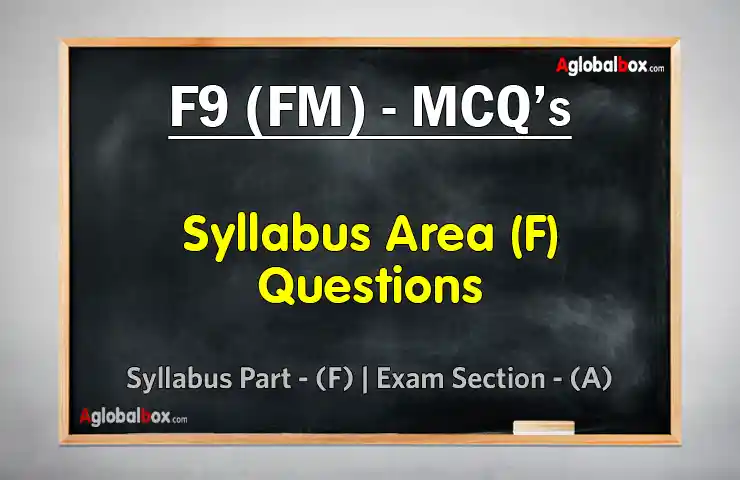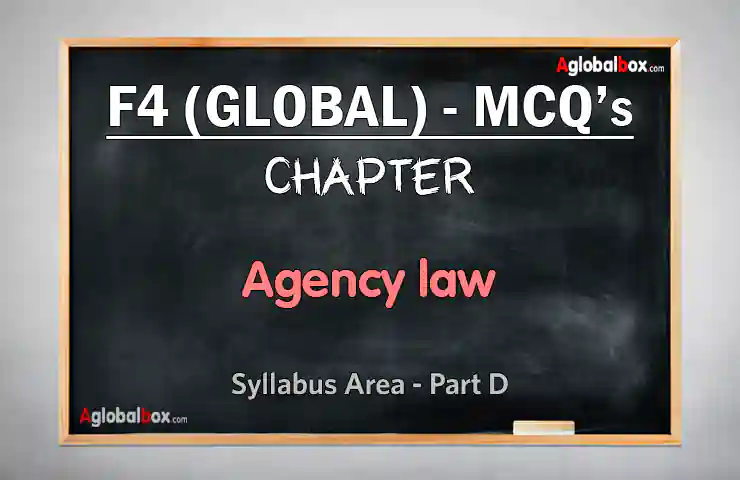This is Quiz #1 for ACCA F4 (LW – ENGLISH) Corporate and Business Law Students.
These Quizzes are designed in a way that students could better understand the exam format and get used to practice online. This approach will reduce the exam stress and students will able to prepare better.
We request the students, do not take the quiz until they have finished the syllabus.
All the questions are compulsory, so do not skip any.
Number of the Questions
This Quiz consists of 15 Questions which covers the entire F4 (LW – ENGLISH) syllabus.
Time
The Quiz have a timer. Students have to finish the quiz within the given time period.
As in ACCA Exam, there are 1.8 minutes per mark. So each 2 marks question have 3.6 minutes to complete. The Quiz have 15 questions, so Students have total 54 minutes to complete the quiz.
Result
Students can see your result at the end of the quiz further the correct and wrong questions. Moreover, the explanation of wrong questions.
Types of Questions
MCQs: Choose one from the given options.
Multiple choice: Choose all those which seems to you correct/ or incorrect, as per the requirement of the question. Keep your eye on the wording “(select all those which are correct)“.
Drop down: Select from the list provided.
Type: Type your answer in numbers as per the requirement of the question.
- ACCA F4 Quiz
- LW English Quiz
- ACCA LW Multiple Choice Questions
- Corporate and Business Law Online Multiple Choice Questions
- ACCA F4 LW Practice Questions
- F4 LW English Practice Questions
- ACCA Corporate and Business Law Online Practice Questions
- F4 Corporate and Business Law Quiz Online
- Corporate and Business Law English Quiz Online
- LW Quiz
- F4 English Quiz
- ACCA Quiz




